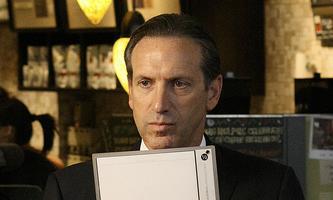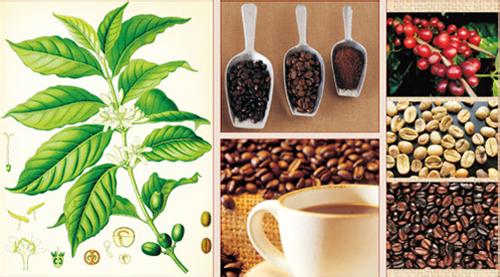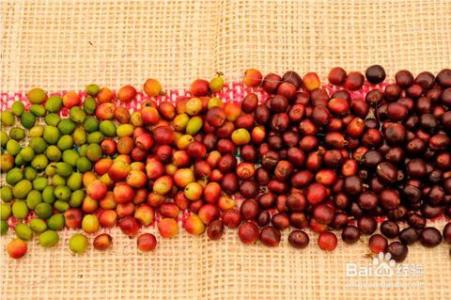Kenyan coffee processing characteristics Flavor description Grind scale Manor area Variety introduction
Kenyan coffee processing characteristics Flavor description Grind scale Manor area Variety introduction
The Kenyan government takes the coffee industry extremely seriously, and it is illegal to cut down or ring coffee trees here. Kenya's coffee buyers are world-class buyers of premium coffee, and no country grows, produces and sells coffee as consistently as Kenya. All coffee beans are first acquired by the Coffee Board of Kenya (CBK), where they are appraised, graded and then sold at weekly auctions, where they are no longer graded. The Kenya Coffee Board acts only as an agent, collecting coffee samples and distributing them to buyers so that they can determine price and quality. Nairobi auctions are held for private exporters and the Kenya Coffee Board pays growers below-market prices. The best coffee grade is bean berry coffee (PB), followed by AA++, AA+, AA, AB, etc., in that order. Fine coffee is shiny, delicious and slightly aromatic.
Kenyan coffee has a unique taste, and there are few similar coffees. Still, it's worth comparing it to Ethiopian coffee. Taste the African acidity and citrus aromas that emanate from each coffee. Kenyan coffee is characterized by a distinct fruity aroma. Try looking for this flavor in your coffee and notice how it feels in your mouth. One of the most common fruit fragrances is citrus.
Unlike most countries of origin, Kenya has a formal coffee marketing organization that cups and grades each batch of coffee before it is sold at auction.
Starbucks doesn't buy coffee at auctions; instead, our suppliers buy coffee they think Starbucks will like and send Starbucks samples. Political conditions, drought and the cultivation of new high-yield coffee trees have kept Starbucks interested in Kenya as a coffee supplier.
Starbucks buys coffee primarily based on coffee flavor, which is why we don't assign Kenyan ratings (e.g.,"AA" or "A"). These grades represent only the size of the coffee beans.

Important Notice :
前街咖啡 FrontStreet Coffee has moved to new addredd:
FrontStreet Coffee Address: 315,Donghua East Road,GuangZhou
Tel:020 38364473
- Prev

High-yield cultivation techniques of Coffee in Hainan
In order to make the standardized planting technology of coffee easy to learn and understand, the Institute of Flavor and Beverage of the Academy of Thermal Sciences has also compiled "High-yield cultivation techniques of Coffee", "Diagram of High-quality and High-yield cultivation techniques of small-grain Coffee", "Coffee cultivation and Primary processing Technology", "standardized production Technology of small-grain Coffee" and other atlas and books, which are given to coffee planting free of charge. The "breeding of 8 clones of medium-grain coffee" developed by the institute has won the country.
- Next

How Coffee enters civilian Life-Square Dance walks into the Coffee Shop
First of all, a good cup of coffee must be qualified! So what kind of coffee is qualified? There must be no obvious defects! What are obvious defects? Let's do the subtraction together! Minus the following questions, at least you can have a cup of coffee! 1. Coffee numb tongue (most of the reason is caused by bean baking, although there are other reasons.
Related
- What brand of black coffee is the most authentic and delicious? what are the characteristics of the flavor of the authentic Rose Summer Black Coffee?
- Introduction to the principle and characteristics of the correct use of mocha pot A detailed course of mocha pot brewing coffee is described in five steps.
- Which is better, decaf or regular coffee? how is decaf made?
- How much is a bag of four cat coffee?
- How about four Cat Coffee or Nestle Coffee? why is it a cheap scam?
- Which is better, Yunnan four Cats Coffee or Nestle Coffee? How about cat coffee? is it a fake scam? why is it so cheap?
- How about Cat Coffee? what grade is a hoax? which instant coffee tastes better, four Cat Coffee, Nestle Coffee or G7 coffee?
- Process flow chart of coffee making-Starbucks coffee making process what coffee tastes good at Starbucks
- The top ten best coffee beans in the world Rose summer coffee or Tanzanian coffee tastes good
- Yunnan four cat coffee is good to drink?_four cat coffee is a big brand? four cat blue mountain coffee is fake?

